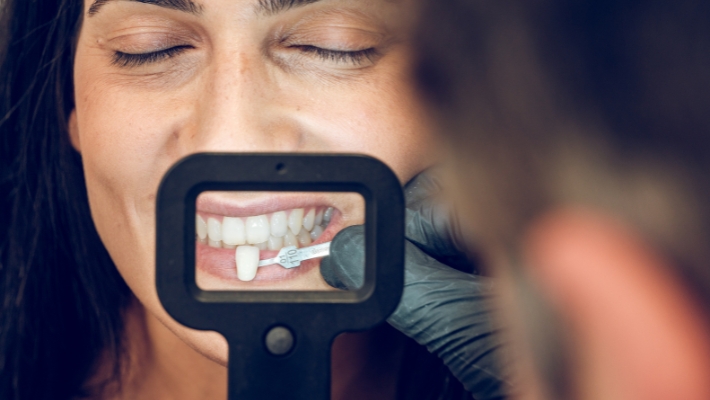
Do you dream of having a perfect smile, but don't want to wear visible and uncomfortable braces? There is a discreet and effective solution to correct imperfections in your teeth: dental veneers. Here we will explain to you what dental veneers are, how they are fitted, what their advantages and disadvantages are, and how much they cost.
A dental veneer is a thin ceramic or composite shell that covers the visible side of a tooth. It allows you to modify the shape, size, color or alignment of a damaged, stained, worn or poorly positioned tooth. Dental veneers are custom designed to adapt perfectly to the morphology of each patient. They are permanently attached to the surface of the teeth using a special cement.
The installation of dental veneers is done in several stages:
Dental veneers have many advantages:
Dental veneers also have some disadvantages:
Dental veneers are an alternative to more invasive dentures, such as crowns or implants, which require further trimming of the tooth. They are also more durable and more natural than composites, which are resins applied directly to the tooth.